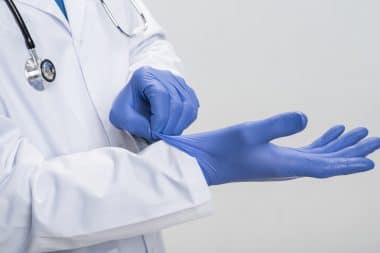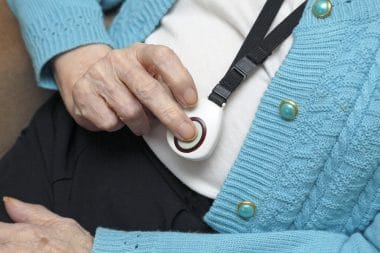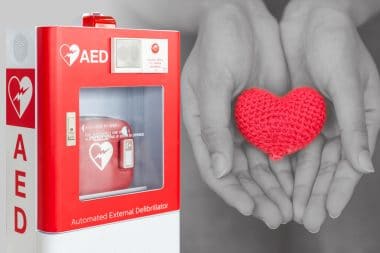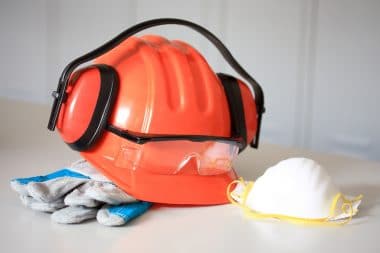A recent report at my local news station that was reporting on the safety at some area splash parks caught my attention. Contaminated water is a concern at a splash park just like a public swimming pool. Water quality must be tested and maintained at a safe level.
I have frequented splash parks during the summer and love the fun in the sun they provide. Splash parks are like sprinklers on steroids, usually run by the city and are free of charge providing cool relief in the hot summer for all to enjoy. I am a huge fan and hope more are built. However, I wrongly thought the exposure to bacteria in the water would be less than at a public swimming pool where you were immersed in the water.
Safe water is determined by testing:
- The Chlorine Content – Chlorine levels need to be kept up in order to keep bacteria from spreading in the water.
- Coliform Bacteria Content – A presence of this can indicate that there are harmful organisms in the water.
- E. coli Presence – A presence of this means that the water has fecal contamination
- Heterotrophic Plate Count (HPC) – The presence of this can indicate that the chlorination is not working properly.
What is E. coli?
Escherichia oli or E. coli is a bacteria that can be found in the intestines of people, the intestines of animals, in the environment and some foods. It is usually harmless, however it can cause some uncomfortable symptoms and it can be dangerous if contracted by the very young or the very old.
We generally think of E. coli linked to diarrhea. According to web.md 75% to 95% of urinary tract infections are caused by E. coli. Other illnesses caused by E. coli are pneumonia and respiratory illness.
Infection can happen just by swallowing a small amount of the bacteria.
Symptoms
Symptoms generally show up 3 to 4 days after exposure to the bacteria; however it is possible to not exhibit symptoms for up to 10 days.
Symptoms can last for just a few days to a week.
- Diarrhea Mild to Severe (Call a doctor if diarrhea doesn’t go away in 3 to 4 days or is bloody or is accompanied with a fever over 102 F)
- Abdominal Cramping or Pain
- Nausea or Vomiting
- Gas
- Fatigue
- Fever
- WARNING SYMPTOMS TO SEEK A DOCTOR’S CARE: dehydration, pale skin, bloody urine, decreased urine output, pale skin and easily bruising.
Risk Factors
- Age – The very young and the very old are most at risk for complications from exposure to E. coli.
- Anyone with a weakened immune system due to illness or age.
- Beware if you take medication to reduce stomach acids. Those acids can protect your from bacterial infections.
Causes
There are many strains of E. coli which can cause differing reactions and illnesses.
Contaminated Water – This can be from a pool, polluted ground water, rivers, streams lakes, irrigation water (on plants) or even municipal water supplies that have become contaminated. Human and animal feces can pollute just about any water source.
Contaminated Food – This can be from undercooked hamburger. Hamburger is a bigger risk than many other meats do to the fact that ground beef combines the meat from lots of different slaughtered cattle. Food must be cooked to certain temperatures in order to kill off the bacteria found in them.
Fresh produce can also pose a problem. Spinach and lettuce seem to be the most at risk vegetables. Farms that are using irrigation water that is compromised are a big source of the issue.
Milk that is not pasteurized can be contaminated from E. coli bacteria that are on the udders of the milk cow.
Person to Person – Bacteria from one person’s hands to another can spread the bacteria. It is mandatory that you wash your hands after using the toilet.
Animal to People – Petting zoos and animal barns are sources for spreading the E. coli bacteria.
Treatment
The good news is that the infection usually goes away on its own. Healthy people should feel better in a week.
- Drink lots of water to keep from being dehydrated.
- Rest
- Do not take medicine to combat the diarrhea. The diarrhea is riding your body of the bacteria. (Seek a Doctor’s care if diarrhea persists is bloody or is accompanied by a fever).
- Stay away from dairy products, foods high in fat and foods high in fiber.
- Eat crackers, toast and rice. Nice bland foods that is easy on your digestion.
Prevention
- WASH YOUR HANDS – Always wash your hands after using the toilet, after changing diapers, before preparing food; after handling raw meat and after petting animals.
- Cook foods to the proper temperature to kill bacteria. Cook hamburger to 165 F; steaks, pork chops to 145 F and chicken to 165 F.
- Wash produce – Wash all produce well in running water.
- Do not drink unpasteurized milk or juice. Pasteurization is a process that kills bacteria.
- Refrigerate leftovers promptly to avoid bacteria growth.
- Do not prepare food if you have diarrhea.
- Do not swallow water while swimming in a pool, lake or pond.
Good and bad bacteria are everywhere, it is important that we don’t panic but learn and use good habits to help avoid the complications of illness caused by the E. coli bacteria. We need to wash our hands frequently, not swallow water at pools or splash parks, use good hygiene in the kitchen and cook foods correctly.
There is More Than Fun at Your Local Splash Park - E. coli! #HealthStatus
Sources:
https://www.wthr.com/article/fun-splash-pad-could-come-health-concerns
https://www.mayoclinic.org/diseases-conditions/e-coli/symptoms-causes/syc-20372058
https://www.cdc.gov/ecoli/general/index.html
https://www.healthline.com/health/e-coli-infection#symptoms
https://www.webmd.com/food-recipes/food-poisoning/what-is-e-coli#1








Reply